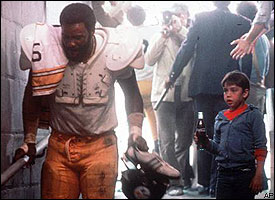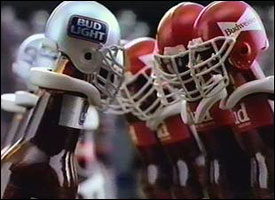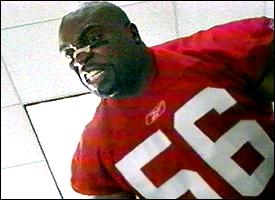| ESPN.com: Page3 |
 | |
| This ad worked out well for Mean Joe Greene and the kid but not for Coke sales. |
Mike Ditka -- Cosentino USA MC Hammer -- Lay's LeBron James -- Bubblicious Gladys Knight -- MBNA Eva Longoria -- Pepsi Joe Montana -- NFL Network Brad Pitt -- Heineken Dennis Rodman -- Cosentino USA Ben Roethlisberger -- NFL Network John Travolta -- MBNA |
 | |
| The Bud Bowl brings back strong memories ... of former 49ers safety Merton Hanks. |
 | |
| Terry Tate used to go all Ron Artest on people. |